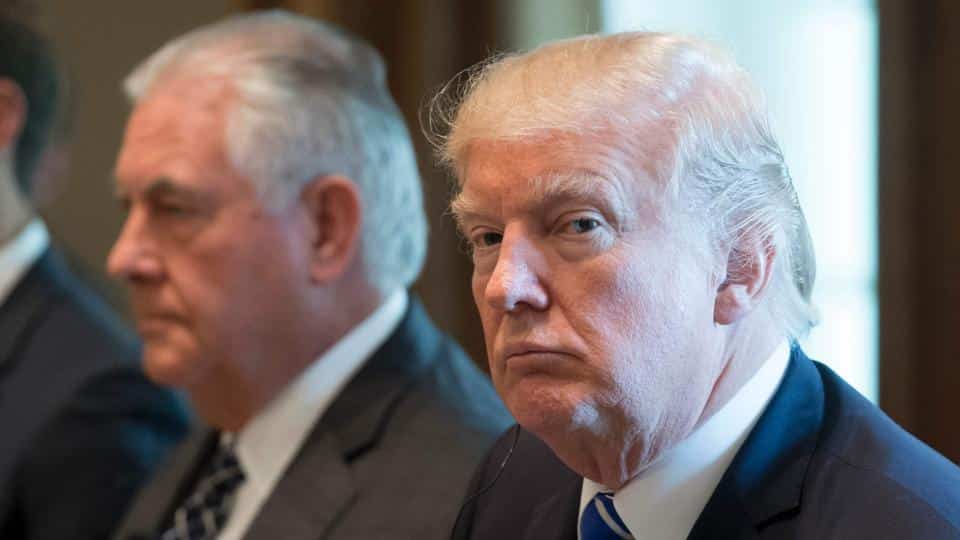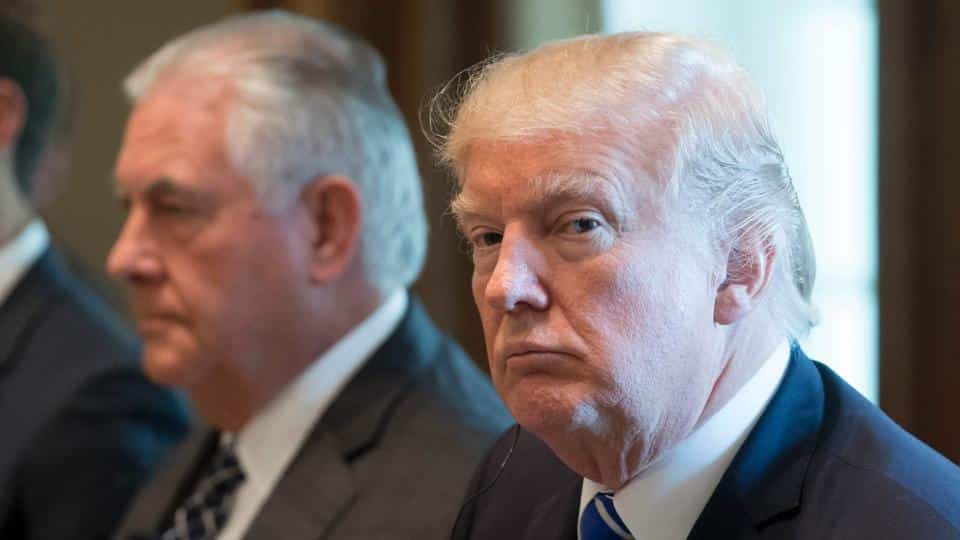As US President Donald Trump marks the first anniversary of his election with a high-profile, 11-day tour of Asia, the spotlight remains largely fixed on Washington investigations into whether his presidential campaign “colluded” with Russia and whether these investigations could truncate Trump’s tenure – much as Watergate truncated Richard Nixon’s.
But as the Watergate scandal was closing in on then President Nixon, he did not let fulminating against his critics keep him from extending a foreign policy record that, in retrospect, even many of his detractors and political opponents acknowledge as a hallmark of his presidency. From the start of his second term in January 1973 until his resignation in August 1974, Nixon sustained his historic opening to China, concluded the US withdrawal from Vietnam, and successfully managed the riskiest US-Soviet nuclear standoff since the Cuban missile crisis.
Today, the key question is: Can President Trump salvage his presidency – or, at least, his legacy – by abandoning the stale, “get tough” sophistry currently shaping US foreign policy debates to positively seize the strategic initiative in critical parts of the world?
The foreign policy Trump promised
When Trump ran for president, one of the few ostensibly promising parts of his platform was a scathing critique of the US foreign policy establishment’s 25-year record of wantonly costly and shamefully destructive blunders – including the invasion of Iraq, the arming of fighters to overthrow the governments in Libya and Syria, and the gratuitous deterioration of US relations with both Russia and China.
These and other debacles all flowed from the same source – a bipartisan consensus that, after the 9/11 attacks, Washington had to prove, with whatever amount of force necessary, that the US remained the world’s sole superpower, enforcing a global order supposedly serving US interests.
Trump challenged this consensus, arguing (at his best) that Washington’s reckless spending of trillions of dollars to maintain such an order had actually made the US weaker, economically and strategically. There was ample reason to doubt that Trump could or would translate this critique into genuinely new and more productive policies.
His own foreign policy thinking was internally conflicted; he has also taken into his administration multiple foreign policy advisers who, in their commitment to US “leadership”, embody the very outlook Trump criticised and (purportedly) rejected during his campaign.
But, in the year since Trump was elected, his domestic travails have tipped the scales of foreign-policy decision-making ever more towards the embrace of strategically failed but, in domestic political terms, “acceptable” approaches. Trump’s campaign suggestion of improving US relations with Moscow and working with Russia on important international challenges – for example, fighting the Islamic State of Iraq and the Levant (ISIL, also known as ISIS) and ending the Syrian conflict – could have been the start of a much-needed course change in US foreign policy.
But the “collusion with Russia” investigation has made seriously investing in such a course too domestically risky. As a result, US ties to Russia are arguably worse now than when Trump came to office.
As candidate Trump himself pointed out, the costs of US’ imperial course have been especially high in the Middle East. In this vital part of the world, the United States – for its own interests and in the interests of greater stability there – needs to recalibrate relations with its traditional allies and engage, positively and comprehensively, with all important regional actors. A robust US diplomatic opening with Iran – going well beyond the nuclear deal – is essential to both these tasks.
The foreign policy Trump implemented
But what now passes for the Trump administration’s Middle East strategy seems to rest on aligning ever more unconditionally with US’ most problematic yet also most traditional regional allies, Saudi Arabia and Israel. While Trump continues (grudgingly) to implement the nuclear deal, he is not inclined, at this point, to use it as the springboard for wider “Nixon to China” rapprochement with Tehran.
In the meantime, Trump’s turn towards Saudi Arabia and Israel is encouraging their leaders to indulge some of their more dangerous ambitions in the region, with higher confidence than they have had for a while that Washington will back even their most reckless schemes.
Fair use excerpt. Read the rest here.


